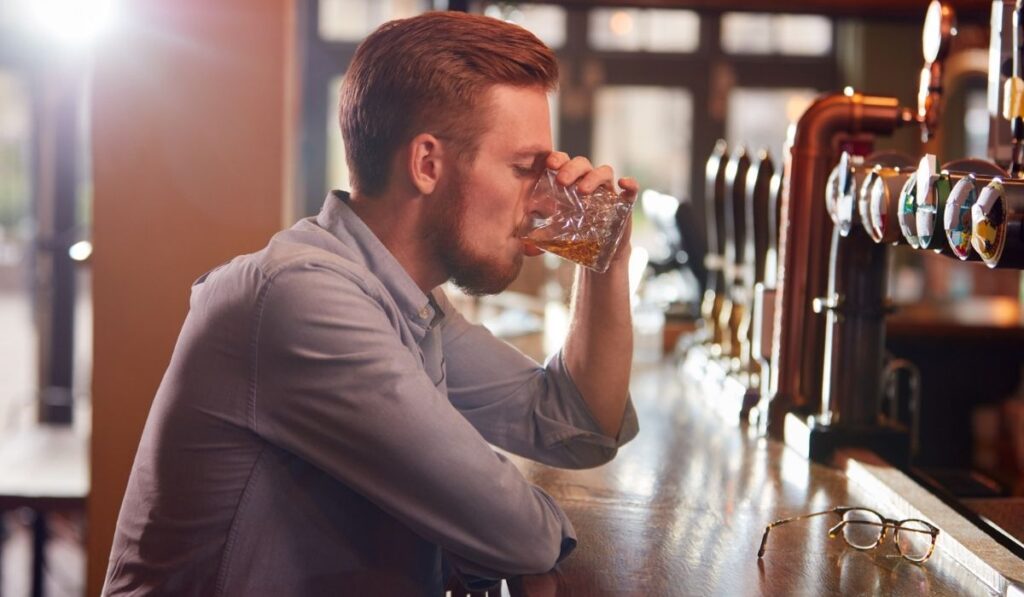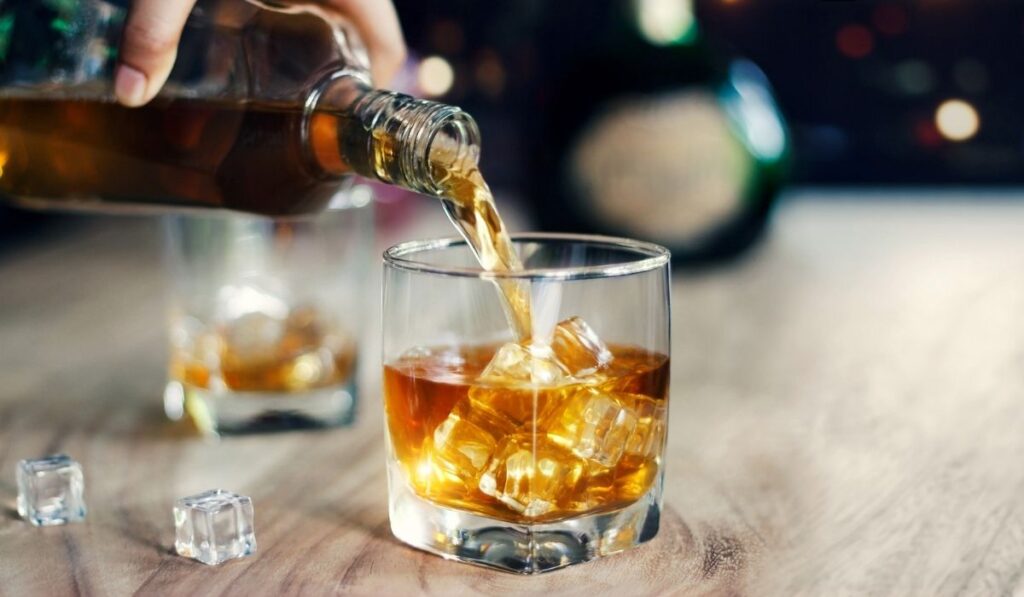Almost all the alcoholic drinks you consume have high levels of acids and sugars, both of which have negative effects on your teeth. The longer the consumption period and the higher the alcoholic content, the more harmful it is for your teeth. Consuming whiskey comes with many general health effects, but it has some specific effects on your teeth.
Drinking whiskey dehydrates your mouth and decreases saliva production, exposing your teeth to accelerated erosion and your gums to accelerated decay. The acidic content of whiskey can also weaken tooth enamel and contribute to stains. Rinsing with water after drinking can help.
While there are other health implications of alcohol consumption, there are also a few benefits, especially with drinks like wine. Moderation is key for all alcohol consumption, including whiskey. Let’s look closer at some questions you may have about whiskey consumption and its connection to your teeth and gums, and explore how to drink whiskey regularly while taking so simple precautions for your oral health.
Is Whiskey Bad for Your Teeth?

Yes, whiskey has an adverse effect on your teeth. Alcohol dries the mouth and reduces saliva production. The reduced saliva production corrects your mouth’s chemistry slower than it otherwise would, so the additional acidity of whiskey also isn’t corrected as fast as it otherwise might be.
So, it’s real one-two punch of increased acidity, and decreased saliva production which corrects the acidity problem slower. This exposes your teeth to enamel erosion and decay. The acidic content of the drink can also increase the likelihood of stains on the teeth.
Chewing sugar-free gum after drinking can help, and gum also comes with many other benefits such as inducing saliva production and restoring the mouth’s usual pH level. Try chewing PUR 100% Xlitol Gum (on Amazon) after your next whiskey.
Not only are your teeth at risk when you drink whiskey, but your mouth is also at risk of oral cancer due to excessive alcohol consumption, especially if it’s done for an extended period.
Scientists believe that alcohol consumption triggers cancer-causing agents, making the oral tissues vulnerable to cancer. This is an additional reason for caution when drinking whiskey.
How Does Whiskey Damage Your Teeth?
Whiskey is bad for your teeth because it’s a very acidic chemical in the end, and when it gets in your mouth, it limits the capacity of your mouth to produce sufficient saliva while leaving your teeth and gums vulnerable to harm. The acidic environment in the mouth then makes any erosion or decay that’s already happening accelerate and have a bigger impact.
Whiskey, as is the case with any other alcohol (and especially when mixed with citrus), increases acidity in your mouth and can contribute to tooth damage. Acid decays teeth by weakening the enamel and making it vulnerable to bacteria.
The drying effect of alcohol in the mouth is a cause of worry. Poor saliva production makes it difficult for your mouth to ward off bacteria and restore its usual pH balance, leaving a conducive environment for tooth decay.
Can Whiskey Stain Your Teeth?
Whiskey shares some of the same properties as coffee, and this makes its staining ability remarkable. So yes, whiskey can indeed stain your teeth. And one major challenge associated with consuming whiskey is that its stains are difficult to remove.
Mixing toothpaste and charcoal is an effective way to remove such stains. This is because the mixture contains exfoliants that aid stain removal. One charcoal toothpaste to try is Hello Oral Care’s Activated Charcoal Toothpaste (on Amazon).
Another important remedy is a baking soda mixture, which is also effective.
Although whiskey can stain the teeth, it can also act as a home remedy for toothaches. The medical properties of alcohol, especially the medical-grade types, come with great medicinal value as a natural substance for killing germs and disinfecting surgical tools.
For this reason, you may have seen someone soak a cotton ball in whiskey and place it on a troublesome tooth to kill pain-causing germs and numb the pain.
Does Whiskey Rot Your Teeth?

Whiskey decreases the rate of saliva production in your mouth, leaving your teeth unguarded and vulnerable to cavity-causing germs and tooth rot.
Consumption of whiskey also increases your chances of having dry mouth and developing gum disease, which is an express route to enamel erosion and dental issues, especially cavities. The reason is simple. Saliva in the mouth cleanses it of microorganisms and balances the pH levels and the proportion of good and bad bacteria.
Alcoholic acid wears down your enamel, leading to the development of dental cavities and tooth decay.
While many won’t want to avoid alcohol entirely, moderation is key, and knowledge of the harmful effects of whiskey will guide you in making an informed choice about what you consume.
If you’re still intent on enjoying a glass of whiskey, here are some tips for reducing the potential damage to your teeth:
- Clean your teeth after whiskey consumption to prevent stains. Do this by rinsing with water immediately after drinking whiskey or brush your teeth after waiting at least 30 minutes.
- Sip water during and after you drink whiskey to prevent dehydration and diminished saliva production.
- Chew sugar-free gum while drinking whiskey. This goes a long way toward sustaining the hydration of your mouth and keeping saliva production stable.


